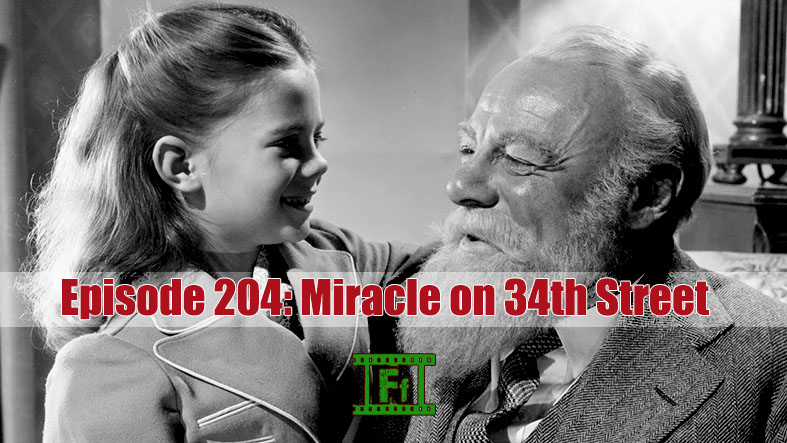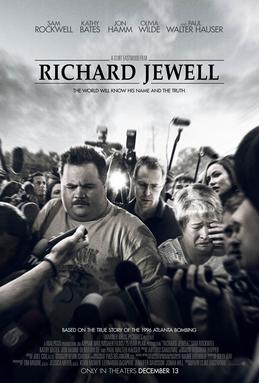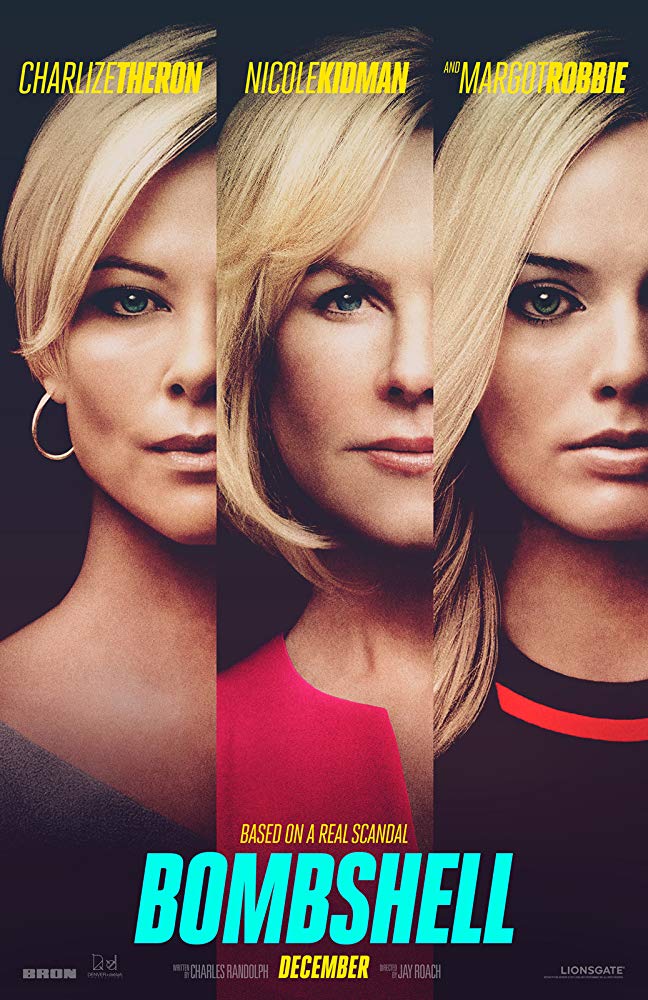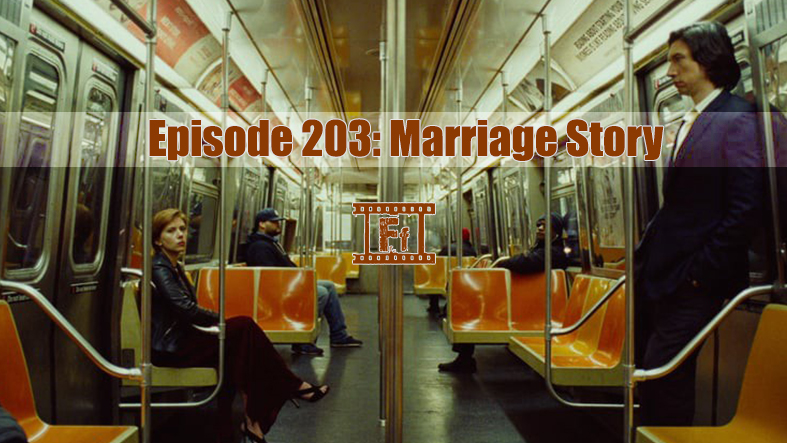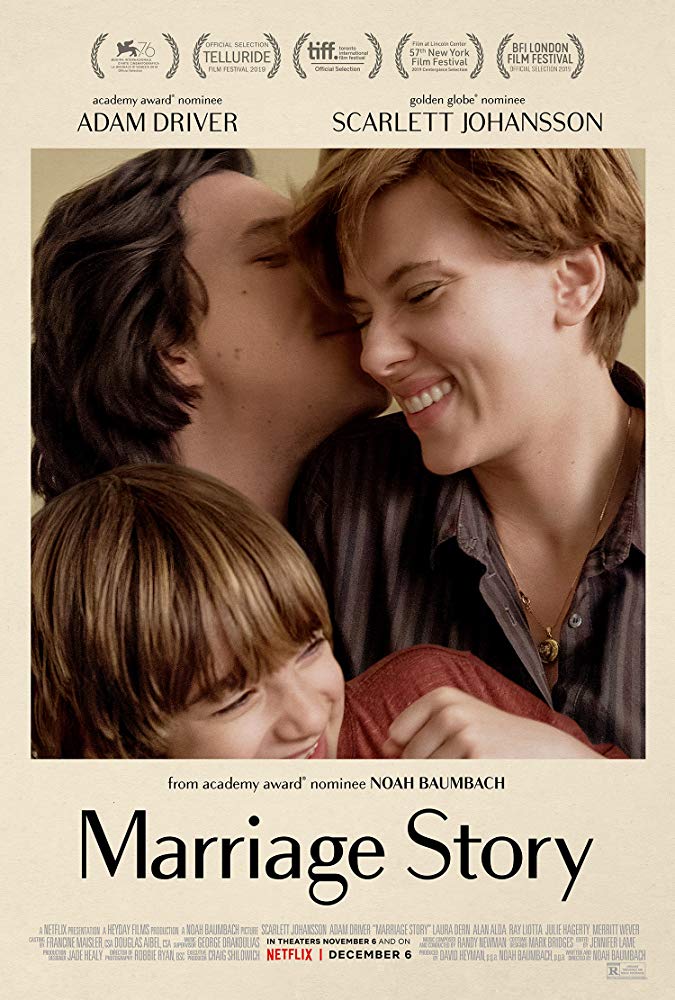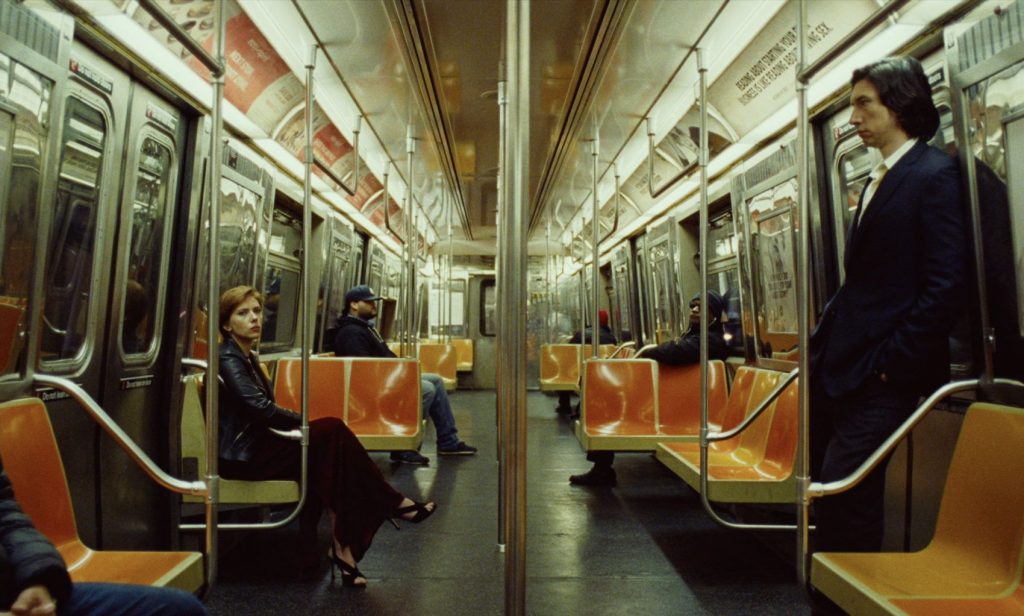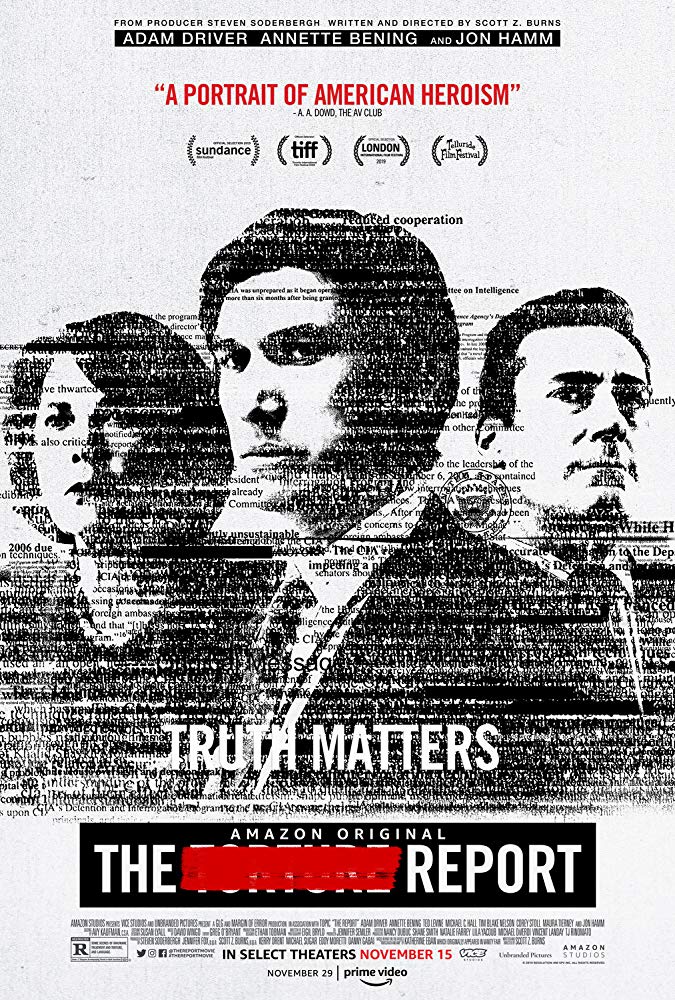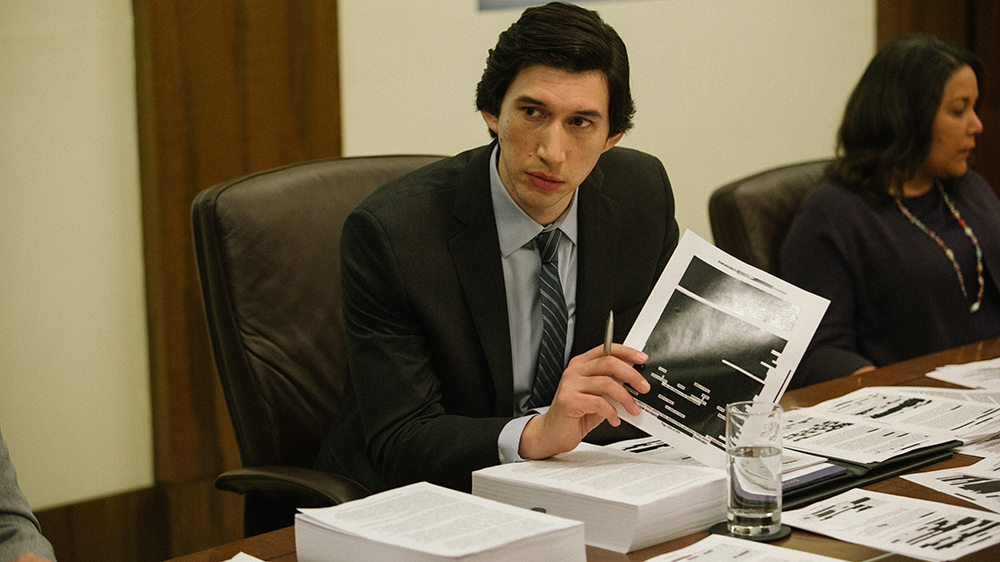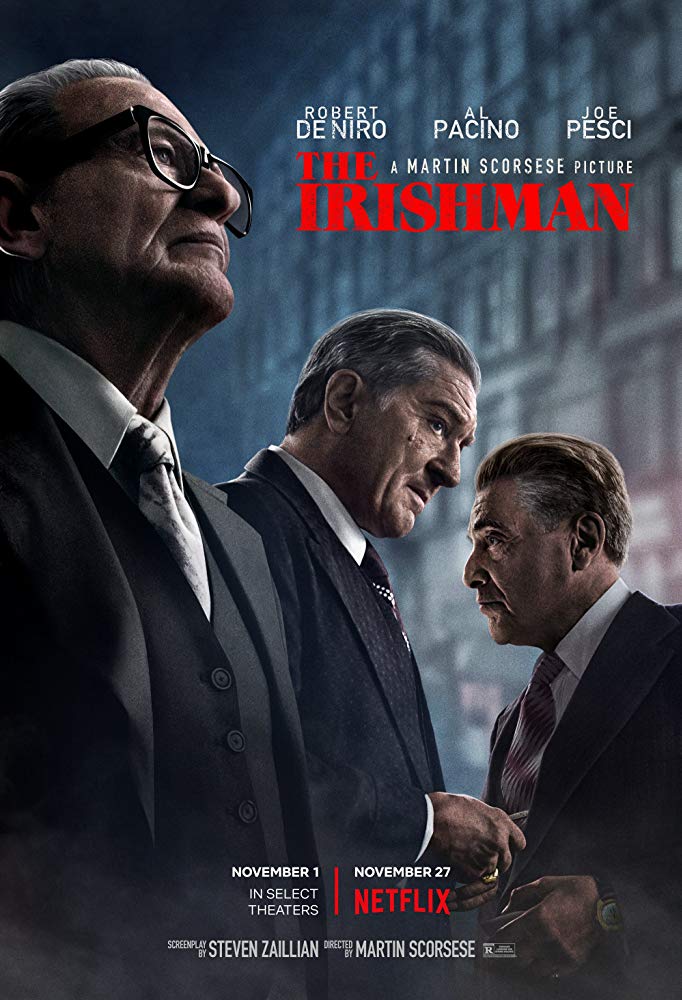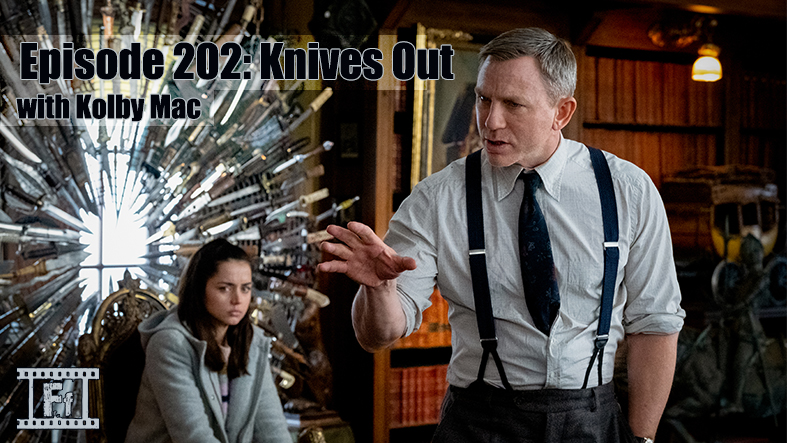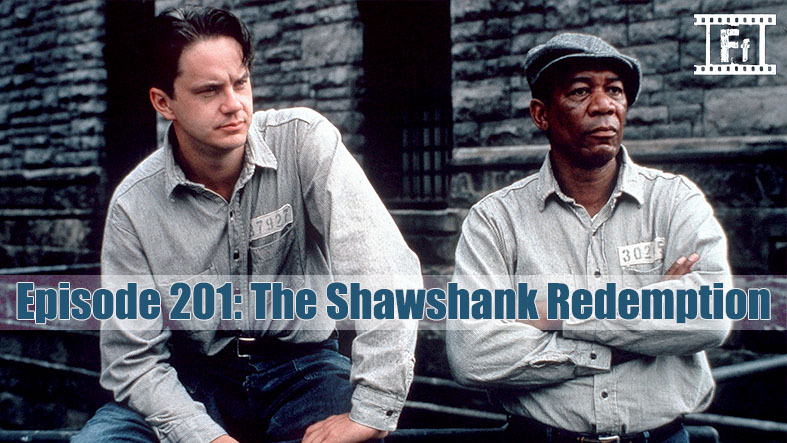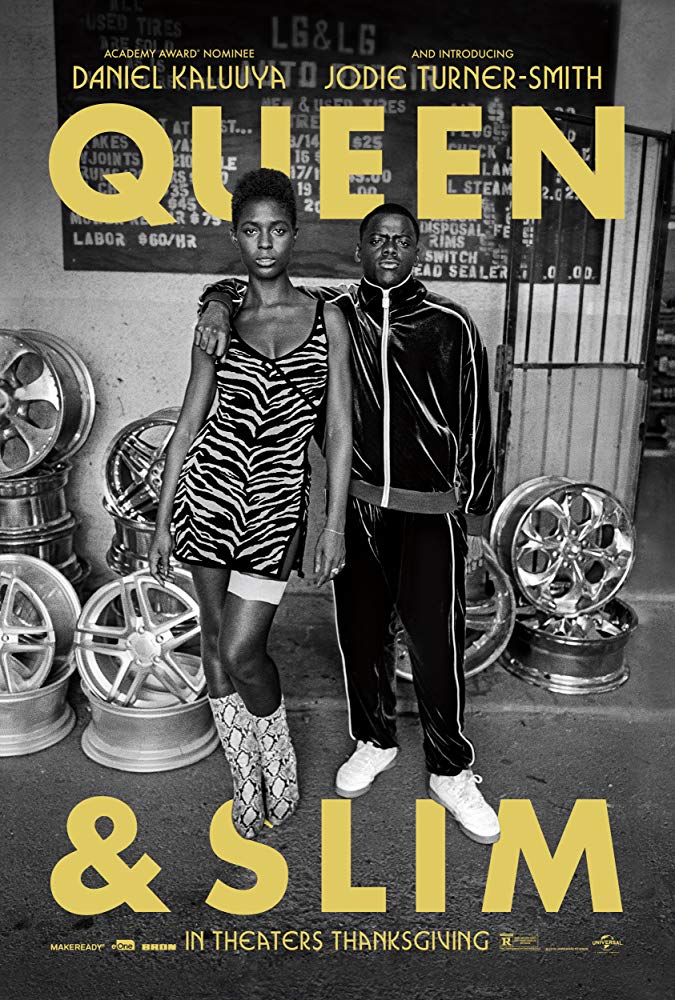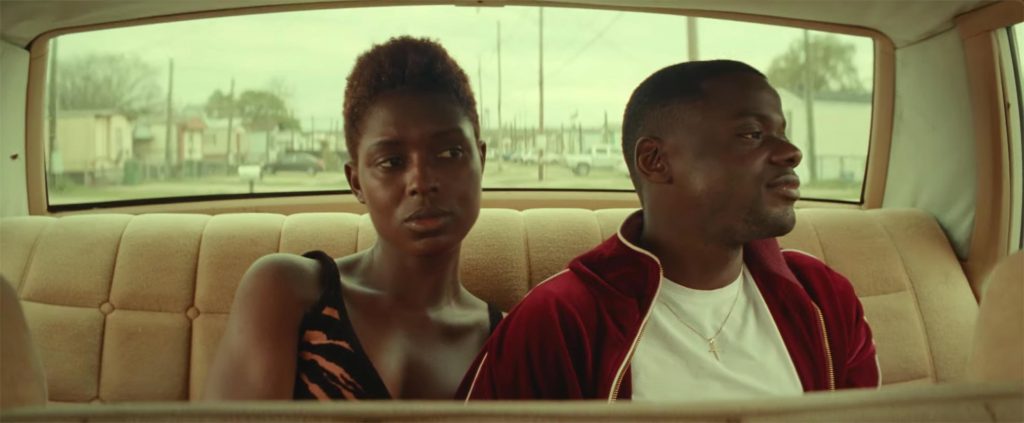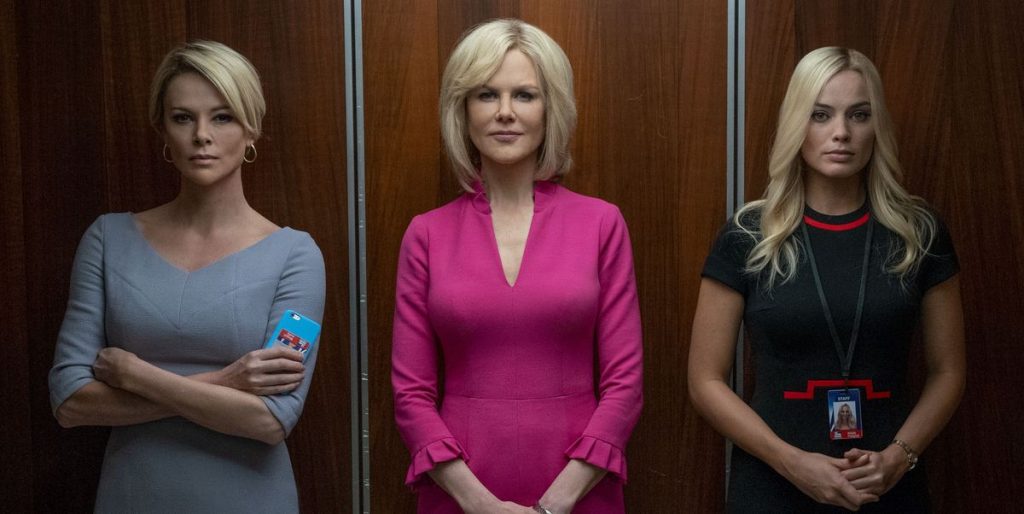
Once upon a time… in Arkansas, I grew up wanting to be a journalist. And specifically, a journalist that covered politics. I ran for school government, closely followed every election, was downtown partying in the streets of Little Rock when Governor Bill Clinton was elected President, and even volunteered on a state Senator’s successful campaign. Plans went askew, though, and somewhere after 9/11 the political discourse became too volatile and upsetting for me, so I began to tune out. For the past decade, I’ve only mildly followed the news and my awareness of major scandals was entirely through the lens of social media. So going into this film, I shockingly was ignorant to the story that “Bombshell” tells, but I’m sure glad that is no longer the case.
“Bombshell” isn’t directed by Adam McKay, but you’d be forgiven for thinking it was. A major reason why is that writer Charles Randolph (who won an Oscar for writing McKay’s best film, “The Big Short”) employs much of the same fourth-wall-breaking dialogue that has become a McKay signature. Director Jay Roach kicks off “Bombshell” with an entire segment of just this – featuring Megyn Kelly (Charlize Theron) giving us a tour of Fox News and an explanation of how the station operates. It’s an engaging way to introduce the audience to several characters and an important background for understanding the structures of power that exist in this Trump-friendly media empire. Roach shows more restraint than McKay after that, though, and settles into a much more traditionally fluid narrative.
The true story being recounted here is a #MeToo nightmare revolving around a culture of sexual abuse and harassment at Fox News that started at the top with CEO Roger Ailes (John Lithgow) and led to a misogynistic work environment for the women employed there. Female employees were regularly subjected to insults from Ailes, promoted based on their appearance and/or willingness to participate in coerced sexual favors, and expected to show as much leg as possible during broadcasts. Frankly, it is disgusting to watch occur, even in this dramatized manner, and many viewers will likely cringe while relating to the dialogue and power games on display that they may have witnessed themselves. For others, it will hopefully be eye-opening to the behavior women still face in many workplaces across America. Lithgow plays Ailes brilliantly, as the slick-talking untouchable snake of an executive he was. He is creepy and rage-inducing, and it’s easy to cheer for his eventual downfall that is coming.
To bring down Ailes and the toxic culture at Fox, it took many brave women speaking up and risking their careers and reputations. The story in “Bombshell” centers on three of them: two highly-regarded television journalists, Megyn Kelly and Gretchen Carlson (Nicole Kidman), and Kayla (Margot Robbie), who serves as a composite character to represent the experience new female employees went through when trying to climb the ladder of success at Fox News. Over the course of the film, Carlson’s initial lawsuit looms over Ailes, and we experience the struggle of women trying to fight back against men of power, with Kelly’s backing being critical to Carlson’s cause. As I mentioned earlier, it is not always easy to watch what these women endured. Roach took great care to present as detailed of a view of what it was really like at that time as possible, including troubling scenes showing women who supported Roger Ailes despite his blatant harassment.
Theron is incredible in her role as Kelly, fully transforming her voice and facial structure via the use of several prosthetics. It’s a committed performance and one that carries the film, as she tries to hide the emotional weight of what it costs for her to come out in support of Carlson against Ailes. Kidman and Robbie, though, are also amazing, providing two additional viewpoints from which to understand the damage being done. All three women portray both the vulnerable and strong parts of their characters incredibly well, and I found myself feeling heartbroken and angry for them.
If you enjoy costuming and production design, those are on point, as well. The costumes are more than just for looks as they play a direct role in how women were judged in the Fox culture. The production design is slick and shiny, just as you’d expect a newsroom to be, and the editing is likewise done through efficient cuts that feel akin to a news broadcast. What I’m trying to say is that “Bombshell” is the total package. It is an Oscar-worthy film, led by some of the best performances of the year, with strong technical elements, and it tells a very important story from the right perspective. In the end, what Carlson and Kelly courageously did will hopefully be inspirational to women everywhere, and provide them the strength and encouragement to stand up against harassment in their own lives. As for men watching, well, you either stand against it with them or you’re part of the problem. And for me? I may not ever end up with that dream career in journalism, but I now have two new heroes in the field, and I think that you will too when you see their story.
Rating:

Aaron White is a Seattle-based film critic and co-creator/co-host of the Feelin’ Film Podcast. He is also a member of the Seattle Film Critics Society. He writes reviews with a focus on the emotional experience he has with a film. Follow him on Facebook and Twitter to be notified when new content is posted.

